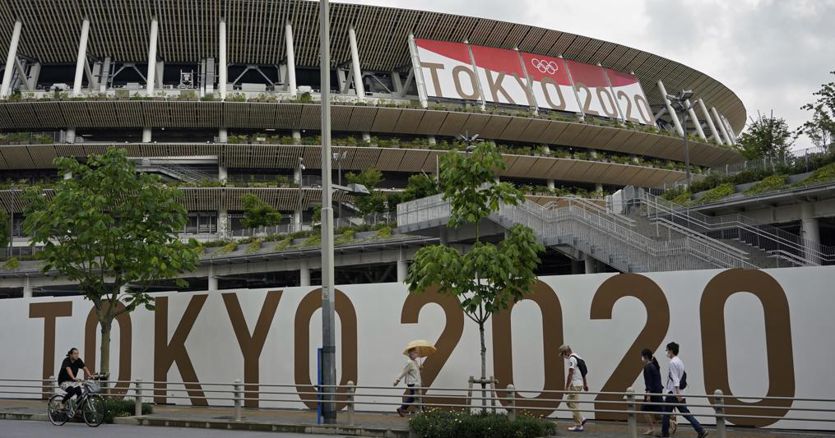While the countdown for the Tokyo Olympics has begun, the inaugural ceremony of which is set for July 23, the Covid-19 alarm in Japan is growing. And for the first time a contagion was recorded in the athletes’ village, a space that, considering the very strict security measures and the strict preventive protocols adopted by the Japanese administration, should have been almost inviolable. The contagion in the Olympic village, together with 14 other cases connected to the Games that will begin next week, casts more doubt on the seal of the “bubbles” to which the organizing committee and the IOC have entrusted the success of the event.
The case in the Olympic Village
Tokyo 2020 CEO Toshihiro Muto clarified that a test conducted in the Olympic Village revealed a positivity. Organizers confirmed that a visitor from overseas who was working for the Olympics tested positive at a routine checkup on Friday. The person’s nationality was not disclosed for privacy reasons. Open since last Tuesday, the Olympic Village, a 44-hectare site built on Tokyo’s waterfront, is made up of 21 buildings capable of accommodating up to 18,000 beds. Most of the 11,000 competitors will stay at the Village. The president of the International Olympic Committee (CIO), Thomas Bach, in Japan since July 8, has guaranteed the Japanese premier, Yoshihide Suga, that 85% of athletes are immunized. Meanwhile, another 14 cases have been found among workers involved in various capacities in the preparatory activities of the Games (between these two members of the media, seven contractors and five members of the personnel assigned to the plants). Since July 1, since the committee began compiling the statistics, without considering the athletes participating in the rallies, 45 coronavirus infections have been recorded.
Loading…
Covid in Japan
The Land of the Rising Sun has so far recorded more than 820,000 cases and about 15,000 deaths. The number of new cases in host city Tokyo, in its fourth state of emergency for the virus, was more than 1,000 for four consecutive days. A relatively low number of infections considering that over 12 million inhabitants live in the urban walls of the Japanese capital (out of a national population of over 120 million). The problem is that less than 20% of the population is fully vaccinated. Both for an inexplicable no-vax culture that seems to be in the majority in Japan, and for delays in the vaccination program allowed by the same political authorities. An unacceptable delay given that the Games have been postponed for a year precisely because of the pandemic. Tokyo 2020 President Seiko Hashimoto acknowledged the concerns. “I understand that there are still many worrying factors. The organizers must try to ensure that people understand that these Games are safe and secure, ”he said at a press conference. “The health situation is already at the highest alert level in Tokyo, and other infections will only put more pressure on the health system,” added Masataka Inokuchi, vice president of the Tokyo Medical Association, at the latest meeting of the Tokyo metropolitan government. . The state of emergency recently extended until 22 August already involves the absence of the local public (after the embargo on foreigners sanctioned two months ago), the ban on the sale of alcohol in bars and restaurants, which must close at 20, and the setting a deadline for events such as concerts at 9pm.
The entry procedures
An army of about 60,000 foreigners is expected to attend the Games, including athletes, referees, officials, sponsors and journalists. The entry system for athletes and for those who for various reasons are coming to Japan to follow the Games is very stringent. Regardless of vaccination, in fact, it is necessary to have a double negative molecular swab to be carried out at home within 96 and 72 hours prior to departure for Tokyo. A salivary test is then scheduled at the airport of arrival and only in the event of a positive result will you be able to land in Japan. But with a sort of sanitary cordon. For the first 14 days of stay you will not be able to have contact with the local population, nor use public transport or taxis not managed by the organization, nor go to bars or restaurants. Before leaving, it was necessary to present a Plan of the activities that you intend to carry out and the sites you want to visit subject to the approval of the committee. After the approval, you register on two apps that will monitor the observance of the plan by the applicant and his state of health (the journalists who will have more contacts than the athletes, blocked in turn in the village until the end of their tests , for example, they will be subjected to frequent tampons during their stay in GIappone). A lockdown by categories and disciplines that, however, a few days after the Olympic brazier is lit, already shows more than one crack.
